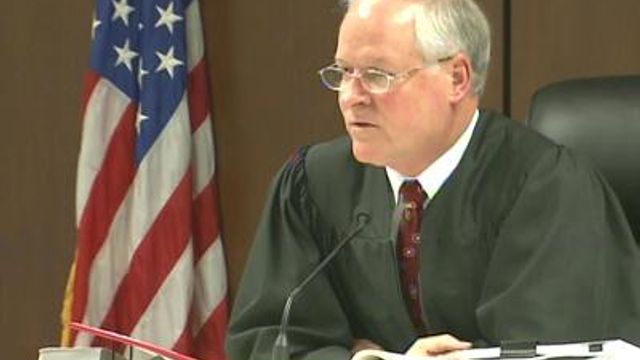Local News
N.C. Executions on Hold, Await New Rules
A Wake County judge on Thursday halted two executions planned for the next week until state officials can devise a plan to carry out the death penalty without physicians.
Posted — UpdatedRALEIGH, N.C. — A Wake County judge on Thursday halted two executions planned for the next week until state officials can devise a plan to carry out the death penalty without physicians.
Superior Court Judge Donald Stephens issued an injunction after Gov. Mike Easley and the Council of State couldn't meet a 10 a.m. deadline he set Wednesday to unveil a new protocol for handling executions that didn't include physicians.
"The moral question and the legal question is whether or not this state wants to execute a person without the supervision of physician present," Stephens said. "If there is a significant change in the execution protocol, it's not the warden or the secretary of corrections that makes that decision, it would be the elected leaders of the state."
Attorneys for Marcus Robinson and James Edward Thomas asked Stephens to block the executions on the grounds that the state can't assure they would die without pain.
Robinson was to be executed at 2 a.m. Friday for the 1991 murder of a Fayetteville teenager, and Thomas had been scheduled to be executed Feb. 2. James Adoph Campbell is scheduled to be put to death on Feb. 9, but that is also in doubt under Stephens' ruling.
North Carolina uses lethal injection for executions, and state law requires that a physician be present when inmates receive the deadly cocktail.
But the North Carolina Medical Board last week approved a policy that prohibits physicians from participating in executions, saying doing so would violate the profession's ethics. Anyone violating the rule could lose his or her medical license.
Thomas Pitman, an attorneys with the Attorney General's Office, argued that the law requires only the mere presence of a physician at an execution to sign the death certificate, which they said wouldn't violate the medical board policy.
Other medical professionals, such as nurses and paramedics, are present to handle the execution, and the licensing boards for those groups have taken no public position on the execution issue, Pitman said.
"This is not some great grandiose individual right suddenly created that the Council of State has to bless these two plaintiffs' executions," he said, reflecting his disagreement with Stephens' ruling.
The attorneys for Robinson and Thomas said the law never intended for physicians to be "potted plants." Instead, physicians are supposed to monitor the vital signs of the condemned person to ensure they aren't subjected to cruel and unusual punishment, which would violate the state and U.S. constitutions, the attorneys said.
"If the state is going to choose to execute people, they have to do it in accord with the law," said Robert Zaytoun, an attorney for Thomas. "I think Judge Stephens said very clearly that the Department of Correction and the warden can't make up the rules as they go along."
The Attorney General's Office plans to consult with Easley and Department of Correction officials before deciding whether to appeal the ruling or to take other steps, said Noelle Talley, a spokeswoman for the Attorney General's Office.
"I think it's a victory for courage," Zaytoun said. "It starts first with the medical board having the courage to issue their ethical ruling clearly knowing the requirements that existed at the time regarding physicians at these executions, and then I think it's an exercise in courage and profile in courage by the court."
Thirty state lawmakers have sent a letter to Easley calling for him to suspend executions. They referred to states like Florida, where Gov. Jeb Bush issued a moratorium after a botched lethal injection.
"We're hopeful that the Council of State and the governor will look at the issue. We're hopeful that they'll follow the lead of Florida, California and eight other states which have put a moratorium on executions," said Geoffrey Hosford, an attorney for Robinson.
Last week, a spokeswoman for Easley said the governor didn't have the authority to get involved after the medical board changed its policy. He could only follow the letter of the law as it applies to clemency issues in individual cases, the spokeswoman said.
Easley's office referred all questions to the Attorney General's Office on Thursday.
Attempts to push a death-penalty moratorium through the General Assembly have failed in past years. But some are ready to address it again.
"I think it moves forward the public debate, and we're very pleased this judge took this action," said Sen. Ellie Kinnaird, D-Orange, one of the organizers of the legislative effort calling for a moratorium.
Kinnaird called Stephens' ruling a procedural issue and said it doesn't address fundamental questions about the death penalty.
"Whether we have executed innocent people and we need a moratorium to make it more just because people of color, poor people and people in rural areas are more likely to get the death penalty is an entirely different question," she said.
She has filed bills calling for a commission to study the use of lethal injection in state executions and to prohibit mentally ill people from being put to death.
• Credits
Copyright 2024 by Capitol Broadcasting Company. All rights reserved. This material may not be published, broadcast, rewritten or redistributed.






